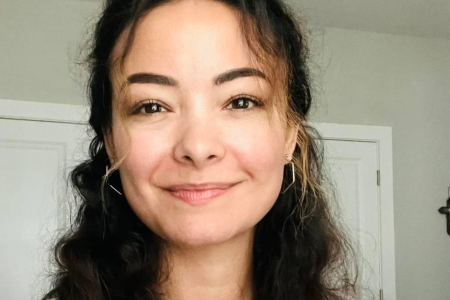A video surfaced online featuring incendiary comments made by Khymani James, one of the leaders of a student protest encampment at Columbia University. In the video, James made threatening remarks against Zionists, saying they don’t deserve to live and that he fights to kill, not injure. The comments were made during a disciplinary hearing with Columbia administrators and were shared widely on social media, sparking a debate about the balance between pro-Palestinian activism and antisemitism on college campuses. The university has vowed to take action against hateful attacks on Jewish students and antisemitic threats, with the school president promising swift consequences for policy violations.
Following the dissemination of the video, Columbia University condemned violent rhetoric and statements targeting individuals based on their religious, ethnic, or national identity. A university spokesman did not confirm if James would face disciplinary action for his comments. In response to the backlash, James issued a statement on social media acknowledging his words were wrong and that every member of the community deserves to feel safe. He clarified that his comments were made before he joined the protest movement and that the movement’s leaders did not condone his statements. However, James did not respond to further requests for comment.
Although it is unclear how many students are leading the protest movement at Columbia, 20-year-old Khymani James has emerged as a prominent figure in recent weeks. He led a news conference outlining the movement’s demands to the university administration, framing the encampment as part of the larger Palestinian liberation movement. His political beliefs include being anti-capitalist and anti-imperialist, and he aspires to a future in Congress after studying economics and political science at Columbia. Despite his involvement in the protests, James’ controversial comments have raised questions about the true motivations behind the movement and the boundaries between activism and hate speech.
The incident at Columbia University highlights the ongoing tension between pro-Palestinian activism and antisemitism on college campuses across the country. University administrators have grappled with balancing free speech rights and ensuring the safety of all students, particularly Jewish students who may face discrimination or threats. The case of Khymani James serves as a reminder of the importance of addressing hateful speech and taking appropriate action to uphold campus policies against discrimination. The incident has prompted discussions within the community about how to navigate complex social and political issues while maintaining a safe and inclusive environment for all students.
As colleges and universities navigate the complexities of political activism and expression on campus, incidents like the one involving Khymani James underscore the need for thoughtful dialogue and proactive measures to address hate speech and discrimination. The Columbia University administration’s response to the incident reflects a commitment to protecting all students from threats and promoting a culture of respect and understanding. Moving forward, institutions of higher education must continue to prioritize inclusivity and diversity while upholding the principles of free speech and academic freedom. By addressing controversial issues with transparency and accountability, universities can create a safer and more welcoming environment for all members of their community.















